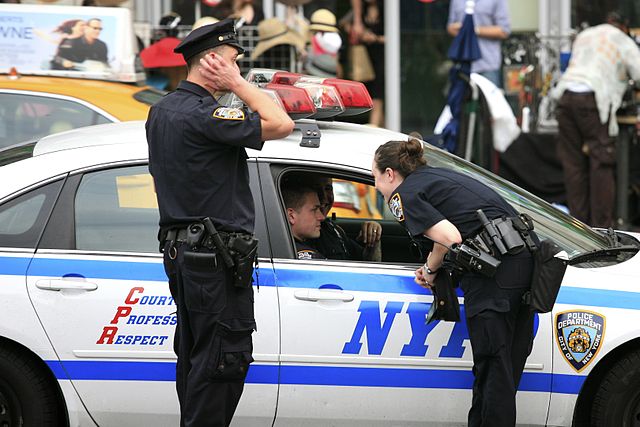Police officers play a crucial role in maintaining law and order within their communities. Their duties and responsibilities encompass a wide range of tasks, all aimed at ensuring public safety and upholding the law. Here’s an explanation of the role of a police officer and their primary duties:
1. Crime Prevention:
- Police officers work to prevent crime by patrolling neighborhoods, public areas, and high-crime areas. Their presence alone can deter criminal activity.

2. Law Enforcement:
- Enforcing laws is a fundamental duty. This includes arresting individuals suspected of committing crimes, issuing citations, and investigating criminal activities.
3. Emergency Response:
- Police officers respond to emergency calls, accidents, disturbances, and incidents that require immediate attention. They provide assistance, investigate, and take necessary actions.
4. Investigation:
- Police officers conduct investigations to gather evidence, interview witnesses, and collect information to solve crimes. Detectives, who are often experienced police officers, focus specifically on criminal investigations.
5. Traffic Control:
- Officers monitor and enforce traffic laws, issue citations, and investigate accidents. They also help control traffic during events and emergencies.
6. Crowd Control:
- During large events or public gatherings, police officers maintain crowd control to prevent disturbances and ensure public safety.
7. Community Policing:
- Officers engage with the community to build positive relationships. They may attend community meetings, provide information, and address concerns to foster trust and collaboration.
8. Domestic Violence Intervention:
- Police officers respond to domestic violence calls and take necessary actions to protect victims, remove threats, and connect victims with support services.
9. Crisis Intervention:
- Officers often respond to situations involving individuals experiencing mental health crises. They aim to de-escalate the situation, provide assistance, and connect individuals with mental health services.
It’s important to note that while these are the primary responsibilities of a police officer, they may also have specialized roles, such as K-9 officers, SWAT team members, or detectives, which involve additional training and responsibilities.
The role of a police officer is challenging, demanding, and often requires split-second decision-making. Effective policing involves not only enforcing the law but also fostering community relationships, protecting citizens, and ensuring justice is served with fairness and impartiality.











